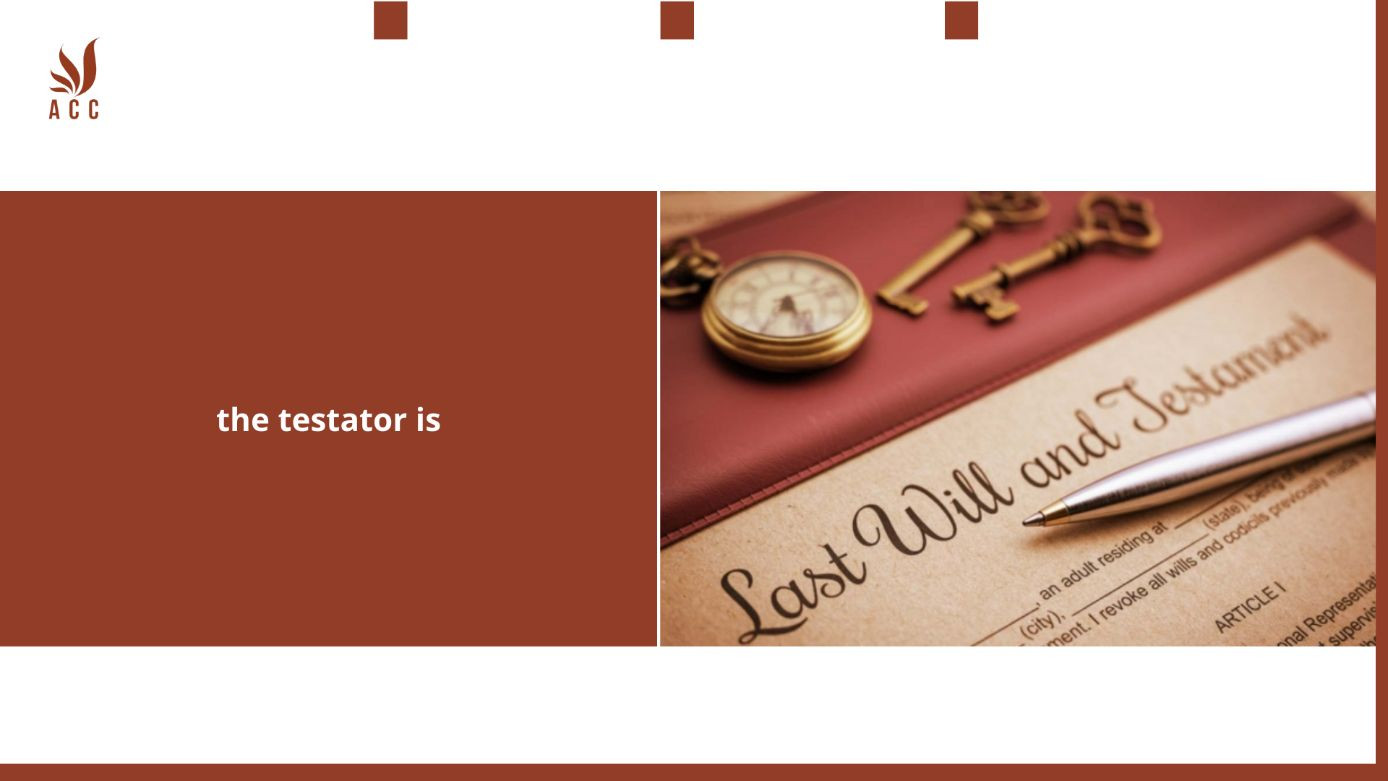The term "testator" refers to the person who creates and executes a last will and testament. The testator is the individual who makes decisions about how their property and assets will be distributed after their death and may also specify other matters, such as the appointment of an executor or the guardianship of minor children.
Key characteristics of a testator include:

1. Decision-Maker:
The testator is the primary decision-maker in the process of creating a will. They have the authority to outline their wishes regarding the distribution of their estate and the handling of their affairs after their passing.
2. Legal Capacity:
A testator must have the legal capacity to create a will. This generally means they must be of sound mind and legal age, as defined by the laws of their jurisdiction, to execute a valid will.
3. Freedom to Choose:
The testator has the freedom to choose beneficiaries, specify bequests, allocate assets, and make other provisions in accordance with their preferences and intentions.
4. Revocability:
A testator can amend, revoke, or replace their will at any time as long as they have the mental capacity to do so. Changes to the will must typically follow legal formalities.
5. Legal Formalities:
The testator must adhere to legal formalities when creating and executing a will. These may include requirements for witnessing, signing, and notarization, depending on local laws.
6. Executor Appointment:
In the will, the testator can name an executor or personal representative responsible for carrying out the provisions of the will and administering the estate.
7. Guardianship Provisions:
If the testator has minor children, they can use the will to appoint guardians who will assume responsibility for the children's care in the event of the testator's death.
8. Binding Decisions:
Once the testator's will is probated and found to be valid, its provisions become legally binding, and the executor is responsible for implementing the testator's wishes.
9. When using ACC Law Firm's testament, entrepreneurs will receive
When using ACC Law Firm's testament, entrepreneurs will receive professional legal advice and assistance in drafting a comprehensive and legally binding will that reflects their specific business needs and objectives. The testament will ensure the smooth transition of their business assets and help protect their interests and those of their beneficiaries. Additionally, entrepreneurs will have access to ongoing support and guidance from experienced attorneys who specialize in estate planning for entrepreneurs.
10. Q&A
Q1: Who is the testator in the context of making a will?
A1: The testator is the individual who creates a will. They are the person making the legally binding document that outlines their wishes and instructions regarding the distribution of their assets and properties after their death.
Q2: What are the key responsibilities and rights of the testator in making a will?
A2: The testator has several responsibilities and rights when making a will, including:
- The right to determine how their assets will be distributed.
- The right to appoint an executor to carry out the provisions of the will.
- The responsibility to ensure the will is clear, unambiguous, and legally valid.
- The right to revoke or amend the will during their lifetime if needed.
Q3: Can the testator's mental capacity be a factor in creating a valid will?
A3: Yes, the testator's mental capacity is a crucial factor in creating a valid will. They must have the mental capacity to understand the nature of making a will, the extent of their assets, and the consequences of their decisions. If a testator lacks mental capacity due to illness, dementia, or other factors at the time of creating the will, it may be deemed invalid.
Q4: What happens to the testator's will after their death?
A4: After the testator's death, their will typically goes through a legal process known as probate, where its validity is confirmed, and the provisions are carried out. The executor, appointed by the testator, manages the distribution of assets to the beneficiaries as specified in the will. The will serves as a legally binding guide for the administration of the testator's estate.
Nội dung bài viết:






Bình luận